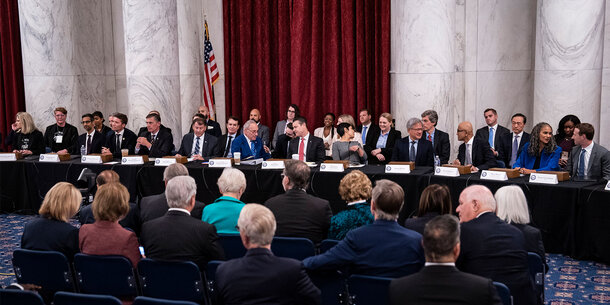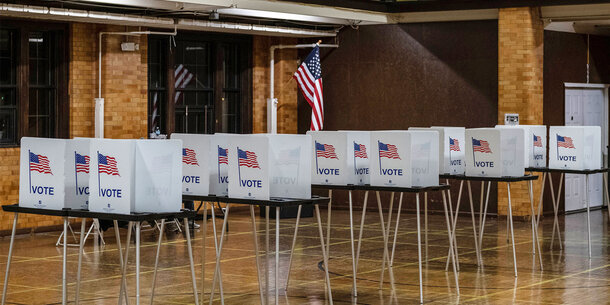This article was originally published in Al Día Dallas.
Over the past 18 months, there has been a wave of anti-voter bills introduced and passed across the country, many of them designed to undermine the growing political power of Latinos and other communities of color. By early May of this year, nearly 400 restrictive bills had been introduced in legislatures nationwide. While some have argued that this is nothing more than a game of partisan politics, with Republicans seeking electoral majorities for their party, new research from the Brennan Center shows that white racial backlash plays an important role in this wave.
Our findings are consistent with the theory that “racial backlash” – a theory describing how white Americans respond to a perceived erosion of power and status by undermining the political opportunities of minorities – is driving this surge of voter restrictions, including those who deny assistance to voters with limited English proficiency.
We identified the sponsors of each restrictive bill introduced in 2021 and then asked which district-level characteristics had a connection to whether a lawmaker sponsored a restrictive voting bill. Representatives from the whitest districts in the most racially diverse states were the most likely to sponsor anti-voter bills, and districts where white survey respondents had higher scores of racial bias were more likely to be represented by lawmakers who sponsored restrictive bills.
Additionally, racially diverse states controlled by Republicans are far more likely to introduce and pass restrictive provisions than very white states with Republican control; in other words, it’s states like Texas and Arizona, not Wyoming or Utah, that are passing the most restrictive legislation.
Our new analysis does not attempt to discern the motivation behind any individual bill or legislator, but rather to point out patterns across the whole country. Still, state-specific evidence shows how some new laws fit into this pattern. Texas and Georgia, for instance, are both being sued for intentionally discriminating against voters of color.
The Brennan Center is suing Texas over Senate Bill 1 on the grounds that it is racially discriminatory, among other things. The law placed serious limitations on the ability of voters with limited English proficiency to get the assistance they are entitled to under federal law—limitations sure to have a disproportionate impact on Latino voters. Some of these provisions have already been blocked by a federal court. What’s more, it bans provisions that were popular with voters of color such as drive-thru voting and extended hour polling locations. We are already seeing the effects of this legislation: in the 2022 Texas Primary, the state’s first election since the enactment of SB 1, mail-ballot rejections soared due to many voters being unaware of new ID requirements. For example, in Harris County, where nearly half of the population is Hispanic or Latino, nearly 7,100 ballots were rejected (a rate of 19.2%) in the March Primary compared to just 135 rejections in the 2018 Midterm.
Another state, Georgia, is also being sued for its Senate Bill 202, which plaintiffs argue deliberately targets voters of color. S.B. 202 includes multiple restrictive provisions such as establishing ID requirements for absentee ballots, limiting access to drop boxes, shortening early voting periods, and banning handouts of food or water to voters waiting in long lines. According to the ACLU and other plaintiffs of the lawsuit, these provisions “were adopted for the purpose of denying voters of color full and equal access to the political process.” Like in Texas, the effects of S.B. 202 were on display in Georgia’s 2022 primary, where the turnout gap between white and Black voters was wider than any other election year in the past decade.
Overall, this wave of restrictive voting legislation is harmful to all voters, but particularly to Latinos and other voters of color. And while our new research doesn’t purport to prove that any individual law was motivated by racism, we should be vigilant when national trends meet specific evidence of racial discrimination, like in Texas and Georgia.






